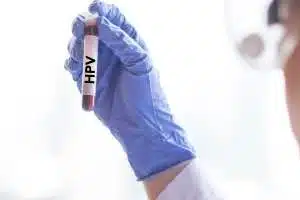
Viruses and psychological suffering
The complexity of HPV and the world that revolves around STD Panel Testing and health care is high. It ends up touching on the most varied themes: from sexuality to illness, to self-image, to generativity, to couples, to fidelity.
Working in Sessions, many things, including my patients’ questions, fears and anxieties.
I saw first-hand how destabilizing this virus can be.
We are more likely to contract the virus as the number of partners increases. This opens up a sense of guilt and self-blame. (“You asked for it”) And the fear of being labelled as an “easy” woman if you share this information. These blames are certainly inappropriate. But, in rejecting retrograde logic, it should be kept in mind. The truth is that the more partners you have, the greater the possibility of coming into contact with the virus. HPV Kit Tests are therefore very necessary to protect yourself.
The transmission of the virus between partners can arouse suspicions of betrayal. Or even bring to light actual STD infection profiles. Even issues not necessarily related to the virus). They can lead to avoiding sex with your partner because you feel “contaminated”. Or because, on the contrary, you are afraid of contracting it. All this STD Panel Testing negatively affects both the couple’s relationship and sexuality.
High-risk variants bring Lesions.
Dealing with high-risk lesions and conizations brings anxiety about the tumour. Fears may arise regarding the future ability to have children. And about birth, about the possibility of scarring, and having the uterus removed. And, of course, no longer being able to have normal sexuality. Furthermore, given the stress of the observation period and the fear of a new infection, one may decide to refuse sex, completely excluding it from one’s life, in order not to go through a process experienced with great anxiety again.
Finally, even the perception of oneself as a “sick” person needs to be cleared up with results from STD Home test reports. Because, although unfounded, it can lead to peaks of anxiety or even to reviewing one’s lifestyle by restructuring the self-image around the “illness”.
Not all women react in the same way to the news of the virus
But the fact remains that experiencing anxiety and having fears, doubts, and a thousand questions in their HPV journey with Papilloma is more than normal, and the hope is that the words of Dr Perono Biacchiardi may have provided some answers.
However, anxiety can reach the levels described. Maybe you are unable to find an answer with HPV tests to calm your fears. Contacting a gynaecologist to obtain specific information on your case may be appropriate. Or even a psychotherapist to work on reducing anxious states. And by restoring more effective than one’s “catastrophic thoughts”. And if it is, unfortunately, necessary, obtain support in dealing with carcinoma.
If you feel you need to review your emotional management of HPV, you can contact us at the Eco Association.
What scenarios for the future?
The data released by the Ministry of Health on vaccination against the virus, updated in 2017, tells us a lot. Vaccination coverage is stuck at 49.9% for females and 15% for males. The number of vaccinated girls has been progressively decreasing since 2008!
These STD numbers are well below the optimal threshold envisaged by the National Vaccine Prevention Plan (95%). Targeted interventions would be necessary for the Italian regions, considering that anti-HPV Lab Tests and vaccination are necessary. However, according to the law, not one of the mandatory ones is an essential level of assistance, especially if we consider that every year, 6,500 new tumours attributable to the virus are registered.
The problem is that an information campaign was already carried out in 2012. It was also conducted by research commissioned by the Ministry of STD Public Health to verify the progress of the vaccination plan. Families received little and conflicting information on HPV and vaccines. And they were afraid of side effects. As we have seen, it was understood that the main source of misinformation was paediatricians, who recommended the vaccine in only 30% of cases. It was therefore necessary to improve training on the topic and the communication skills of all relevant healthcare workers, not just paediatricians.
Communication Vital for Healthcare
For families, it isn’t easy to approach the vaccine topic. It seems to lie in the presence of the sexual element implicated in the disease. In fact, among the responses to that 2012 survey, there was frequent reference to the fact that one’s daughter was too young. Thus, to be sexually active and, therefore, a virus vaccination was irrelevant. Only 34% of families considered their daughters at risk of viral type infection of the virus (when we know that the risk of contracting it is 90% in young girls).
This indicates how little or no information was available on the transmission of the virus and the need for an early vaccine.
Finally, only 37% of the families interviewed knew that the virus also affects children.
There is no more recent data from HPV tests on whether knowledge and information have improved. So, finding clear and correct answers on Papilloma isn’t easy.
We also know that people look for information on Papilloma mainly on the internet, so perhaps the revolution should start there.
The case of Denmark is emblematic.
In 2014, Denmark aced with the same scepticism and drastically reduced the vaccinated population. It investigated the causes further, discovering that much of the debate on the HPV vaccine was taking place on Facebook. A year later, the health authorities launched the “Stop HPV, Stop Cervical Cancer” campaign. This saw the publication of articles and, above all, the opening of a Facebook page. The page was to answer questions from parents and children and share stories. In 2 years, Denmark has doubled the number of STD Girls Tested and vaccinated.
